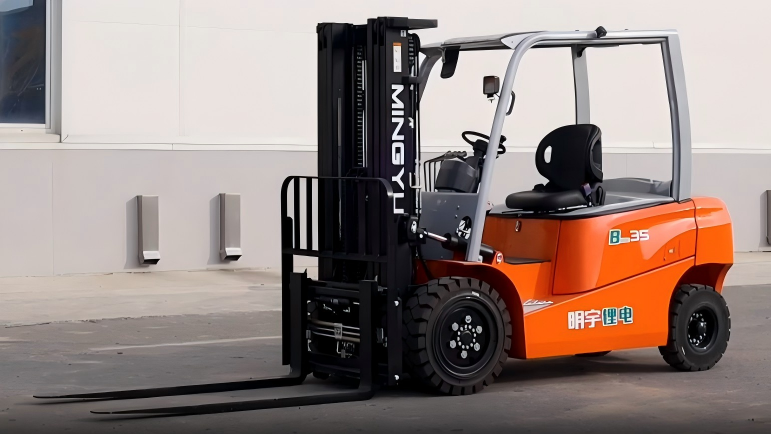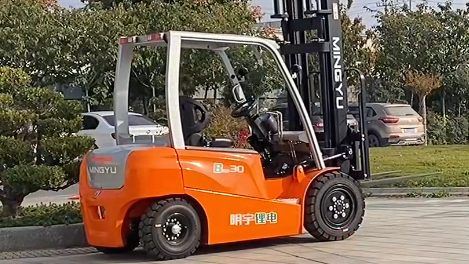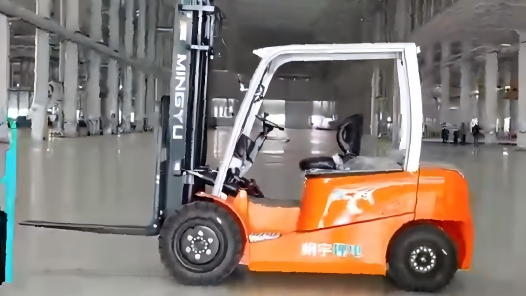Choosing the right forklift is a critical decision for any warehouse or industrial operation. The two most common types on the market today are electric and propane forklifts, each offering distinct advantages and disadvantages. While brands like MYZG, Still Forklift, and others have expanded their product lines to offer both, the fundamental differences between these two power sources remain. The question for business owners and fleet managers isn't just about which brand to choose, but which type of forklift is the most efficient, cost-effective, and suitable for their specific operational needs. This comprehensive analysis delves into the key factors to consider when making this important choice.
Understanding Electric Forklifts
Electric forklifts are powered by large, rechargeable batteries. Their popularity has soared in recent years due to advancements in battery technology, which now offer longer runtimes and faster charging. The core appeal of electric forklifts lies in their environmental friendliness and low operating costs.
Environmental Impact: Electric forklifts produce zero emissions, making them ideal for indoor use, particularly in environments where air quality is a concern, such as food processing, pharmaceuticals, or any space with poor ventilation. This eliminates the need for expensive ventilation systems and protects employee health. The quiet operation of electric forklifts also contributes to a safer, more pleasant work environment by reducing noise pollution.
Operating Costs and Maintenance: While the initial purchase price of an electric forklift can be higher than its propane counterpart, the long-term cost savings are significant. Electricity is generally cheaper than propane, and electric motors have fewer moving parts than internal combustion engines, which translates to lower maintenance costs and less frequent servicing. There's no need to change oil, spark plugs, or fuel filters. However, a major consideration is the upfront cost of batteries and charging infrastructure. A single battery can be expensive, and a multi-shift operation may require multiple batteries and a dedicated charging station.Performance and Limitations: Modern electric forklifts, including those from brands like Still Forklift, offer impressive performance with powerful acceleration and lifting capabilities. They excel in applications requiring precise control and maneuverability. The main limitation is downtime for recharging. While some fast-charging options exist, a full charge can take several hours, and a battery swap requires specialized equipment and training. This can be a challenge for businesses with continuous, round-the-clock operations unless they invest in a fleet of batteries. The performance of the forklift can also decrease as the battery charge diminishes.

Understanding Propane Forklifts
Propane forklifts, powered by an internal combustion engine that burns liquid propane, have long been a workhorse in the material handling industry. Their strength lies in their power, versatility, and ease of refueling.
Performance and Versatility: Propane forklifts offer consistent power throughout their operation, with no decline in performance as the fuel tank empties. They are known for their speed, high lifting capacity, and ability to perform well on uneven outdoor surfaces, making them suitable for both indoor and outdoor applications. The fast refueling process is a major advantage. Swapping out an empty propane tank for a full one takes only a few minutes, allowing the forklift to get back to work with minimal downtime.
Operating Costs and Maintenance: The initial purchase price of a propane forklift is often lower than that of an electric model. However, the ongoing costs can be higher. Propane fuel can be more expensive and volatile in price compared to electricity. Additionally, the internal combustion engine requires more frequent and extensive maintenance, including oil changes, filter replacements, and engine tune-ups, similar to a car.

Environmental and Health Concerns: Propane forklifts emit carbon monoxide and other pollutants, which makes them unsuitable for use in poorly ventilated indoor spaces without proper safety measures. The exhaust can be a health hazard, and the noise levels are significantly higher than those of electric forklifts. This limits their application in certain industries and can contribute to a noisier, less comfortable working environment.
Which One Is Better for Your Business?
The decision ultimately comes down to your specific operational needs. There is no one-size-fits-all answer.
Choose an Electric Forklift if:
Your operation is primarily indoors and in a controlled environment.
You prioritize air quality and a quiet workspace.
You have a stable power supply and can manage charging schedules or afford a multi-battery system.
You are looking for long-term savings on maintenan
Post time:Aug.12.2025

